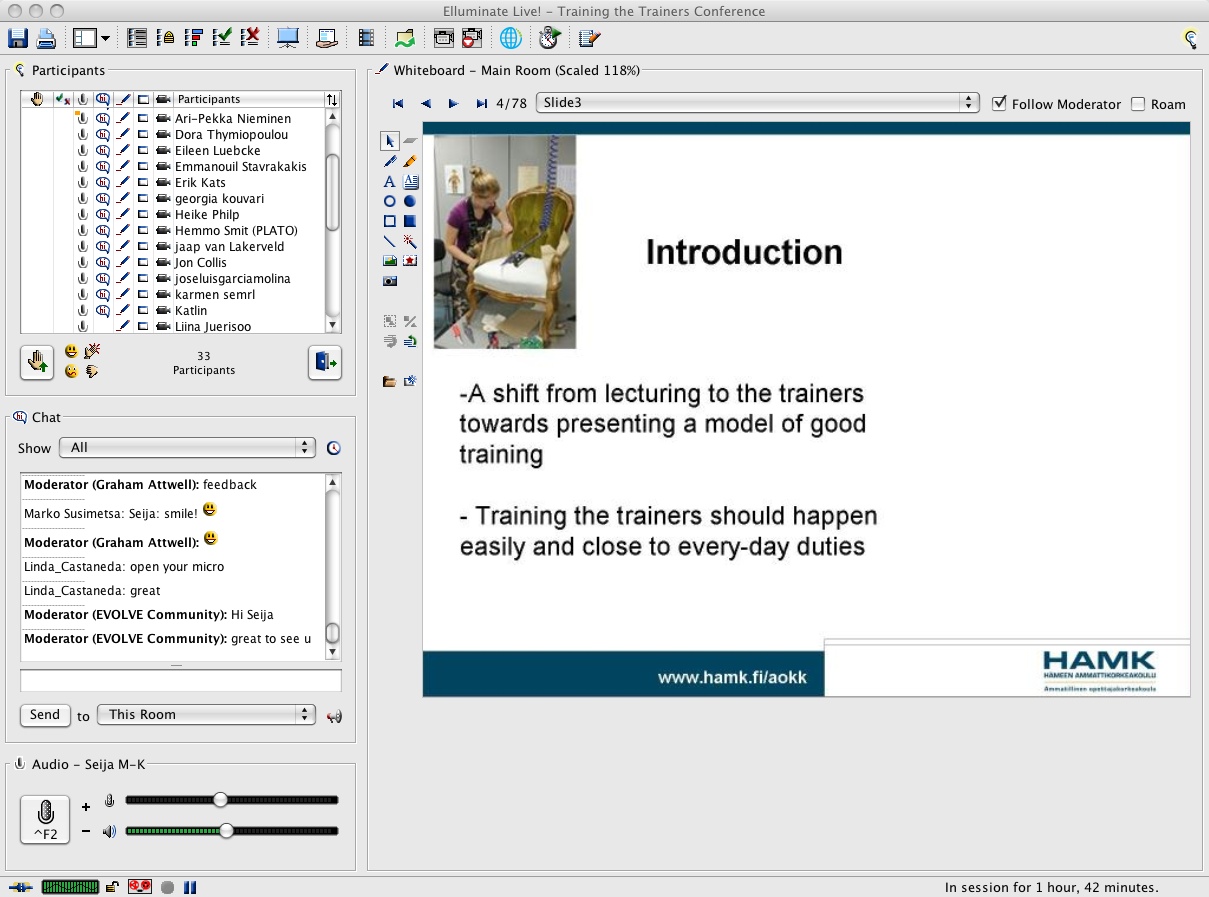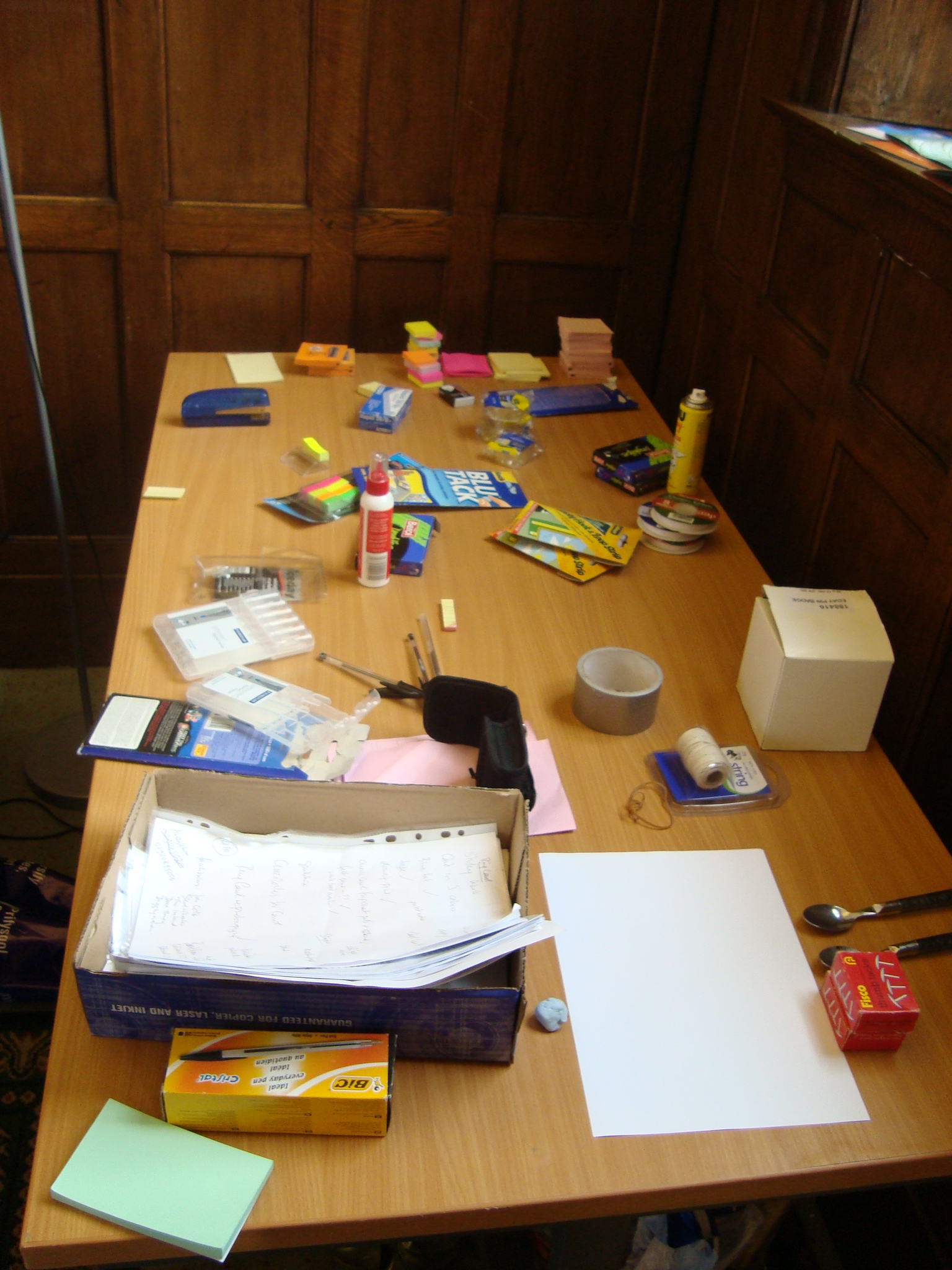Before I got involved in all this ICT supported learning stuff, I spent a lot of time working on qualifications for the initial and continuing education of teachers and trainers – mainly in vocational education and training. Last year I was pursuaded to launch another project on this subject – this time about the training of trainers. The project is called TTPlus. And I am very glad that I did.
One of the benefits of coming back to a subject after a break of several years is that it allows you to review how your ideas have changed. Whereas in the past I had focused on formal courses and qualifications, and formal job descriptions, now I was more interested in informal learning and in how learning and professional development related to practice. TTPlus is a European project and has a great group of partners from Germany, Greece, Portugal, the Netherlands and Austria.
We all trust each other – and instead of the usual project meetings devoted to too much reporting of activity undertaken and much to much administration we have been able to get into the methodology and content of our project.
If you want to find out more go the the project web site.
One of the outcomes of the project is a Framework for Continuing Professional Development. The challenge for me is how to relate such a framework to practice and how to make a framework genuinely open, rather than merely a progression ladder through formal learning.
Below is my first attempt at such a document – written together with Philipp Grollman and Eileen Luebcke. You can also download the full document which explains the outcomes of our case studies into the practice of trainers.
We are still working on the Framework and on how such a Framework might be implemeted but I would be very happy for comments on the draft from any readers.
The basis for the Open Framework for Continuing Professional Development for Trainers in Europe is that the Framework must address all those concerned with training and learning. This includes trainers – both full and part time – but also employers and enterprises, sector organisations, trade unions, regulatory bodies, regional economic bodies, examination and certification organisations and local, regional national and European governmental organisations.
The Framework is designed to be inclusive and flexible. It is designed to support trainers and organisations in developing, promoting and facilitating opportunities for professional development. It is based on voluntary commitment to both implementing the Framework and monitoring progress towards that implementation.
1. Recognition of the importance of trainers in facilitating learning and the role of learning for individual competence development and organisational development
The Framework for the Continuing Professional Development of trainers is based on the recognition of the importance of training for the development of individual competencies and lifelong learning for individual employees and organisational development within enterprises.
2. Recognition of different modes of learning
The Framework recognises the different ways in which people learn and develop competence. This may include participation in formal full or part time training, externally or in the workplace, but it also includes informal on the job learning and self study. The Framework recognises that trainers may have a role in supporting all these different forms of learning.
3. Recognition of role different people play in training and learning
The Framework recognises that many different people play a role in supporting learning. These include full and prat time trainers but also those who support others in learning as part of their job for instance through he induction of new staff. They may also include those responsible for the design and development of computer supported learning or those who facilitate professional networking.
4. Development of Competencies
The Framework recognises the broad range of competencies required of trainers. These include:
• subject or occupational competences
• didactic competences
• organisational competences
• Interpersonal competences
Opportunities for professional development should allow trainers to develop all of these competences.
5. Importance of opportunities for initial and continuing professional development
The Framework recognises the importance of both initial and continuing professional development for the effectiveness and quality of training. The Framework is based on an individual commitment by trainers to their own professional development, a commitment by enterprises to providing opportunities and supporting professional development and a commitment by other organisations to supporting and recognising that professional development.
6. Importance of opportunities of opportunities to practice
The framework recognises the importance of opportunities to practice. It commits organisations to providing varied opportunities for practice as part of professional development.
7. Importance of networking
The Framework recognises the importance of networking – within companies, between companies and in broader Communities of Practice as a means to professional development. It commits organisations to facilitating participation within networks and communities for trainers.
8. Partnerships
The Framework recognises the importance of partnership in recognising professional development and in providing opportunities of that development to take place. such partnerships may include employers and enterprises, sector organisations, trade unions, regulatory bodies, regional economic bodies, examination and certification organisations and local, regional national and European governmental organisations.
9. Reflection
The Framework recognises the importance of reflection on practice as a key element in professional development. Thus it advocates the prevision of opportunities for reflection through peer review and mentoring and though the promotion of activities and tools for recording reflection including diaries and (e)-portfolios.
10. Role of formal qualifications
The Framework recognises that although many trainers have no formal qualification in training and may not wish to acquire such a qualification but for others the achievement of a formal qualification may play a role in their learning and may offer them opportunities for professional advancement. Thus commitment to the Framework includes the development and recognition of relevant and flexible qualifications, forms of assessment and evaluation which recognise practice and access to such qualifications.
11. Development of tools and platforms
The Framework recognises the importance of appropriate tools and platforms for networking between trainers, for the exchange of experiences and practice and for monitoring opportunities for professional development. The Framework will promote the development and use of such tools and platforms.
12. Promotion of the Framework
For such a Framework to be effective, it will require widespread dissemination, promotion and adoption. Framework signatories will be committed to such activities.
13. Research and monitoring
Research has an important role to play in supporting the development and implementation of a Framework for professional development. This includes research into the context, role and competences of trainers, monitoring of progress in implementing professional development opportunities and critically, providing example of effective and innovative practice. The Framework will support and disseminate such research.
14. Implementation
It is recognised that the Framework cannot be imposed by regulatory or legislative means. Instead the Framework is based on voluntary adoption. Such adoption involves a commitment to implementation of the framework, whilst recognising flexibility in the different ways this may be undertaken, to transparency in the measures undertaken and in monitoring, reviewing and reporting on progress in implementation.
15. Governance and further development of the Framework
As an Open Framework, no single organisation can own or govern the Framework. However, it is proposed that appropriate bodies at European, national, regional and sector levels should undertake to co-ordinate the adoption and further development of the Framework. We will propose further ideas on how this might be undertaken.
TTPlus_Framework




